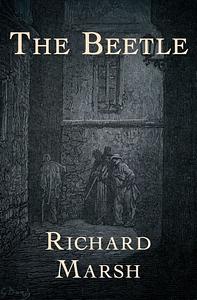Take a photo of a barcode or cover
dark
mysterious
tense
medium-paced
Plot or Character Driven:
Plot
Strong character development:
No
Loveable characters:
No
Diverse cast of characters:
No
Flaws of characters a main focus:
Yes
Oof, my first attempted Victober read this year was a bust. I enjoyed the narration in the first chapter, but very soon the narrating character was hypnotized, or brain-hijacked, or something, and became a completely passive observer to the events, even when he was physically involved. I'm finding it really hard to be invested in the story under those circumstances.
funny
mysterious
tense
fast-paced
Plot or Character Driven:
A mix
Strong character development:
No
Loveable characters:
Complicated
Diverse cast of characters:
No
Flaws of characters a main focus:
Yes
Rewriting/expanding this review because, despite everything, I Cannot stop thinking about this book. Was it good? Yes. Was it bad? Yes. Do I recommend it? I DON'T KNOW? PROBABLY NOT?
Okay, so let's start with the bad, because what's bad about it is REALLY bad. This book was written in 1897, but even for a Victorian novel, oh BOY. WOWZA. YIKES. It's ostensibly a horror novel, but by FAR the scariest thing in here is the depiction of "evil brown foreigners" and "gender deviance." If I hadn't been reading this for book club, and therefore with a sense of obligation to finish it, I would have ABSOLUTELY have noped out by the point we get to the Spoilercult of hermaphroditic middle eastern people who sacrifice white women to their heathen god. YEAH. BAD. I have a mental image of a young Howard Phillip Lovecraft, age 10 or so, picking up this book, and getting Ideas about things.
THAT BEING SAID. Sydney Atherton may be the best character in literary history. He sucks so much. I adore him. He's the single most petty, juvenile, unhinged man I've ever had the pleasure to read about in a classic novel. The exchange where he talks to his friend and it goes like this:
Okay, so let's start with the bad, because what's bad about it is REALLY bad. This book was written in 1897, but even for a Victorian novel, oh BOY. WOWZA. YIKES. It's ostensibly a horror novel, but by FAR the scariest thing in here is the depiction of "evil brown foreigners" and "gender deviance." If I hadn't been reading this for book club, and therefore with a sense of obligation to finish it, I would have ABSOLUTELY have noped out by the point we get to the Spoilercult of hermaphroditic middle eastern people who sacrifice white women to their heathen god. YEAH. BAD. I have a mental image of a young Howard Phillip Lovecraft, age 10 or so, picking up this book, and getting Ideas about things.
THAT BEING SAID. Sydney Atherton may be the best character in literary history. He sucks so much. I adore him. He's the single most petty, juvenile, unhinged man I've ever had the pleasure to read about in a classic novel. The exchange where he talks to his friend and it goes like this:
Atherton: What would you do if you loved someone but she loved someone else?
Atherton's friend whose name I've forgotten: Idk, be sad but wish them well? You'd want her to be happy, even if it was with someone else, right?
Atherton: No! I'd start planning his murder!
Feels almost ANACHRONISTICALLY modern. And that's not REMOTELY the wildest thing he does IN BOOK TWO ALONE.
Anyway, I see why this book lost popularity, but on some level I would love to see it adapted for a modern audience. It honestly wouldn't be THAT hard to keep the bones of the story, and write out the xenophobia/transphobia, etc. (In my book club, we even discussed an adaptation set in the 90s, where Paul Lessingham's dark secret is that he joined an ecofascist cult in the 70s when he was a teen, has since left and got his shit together, and doesn't want that to get out now that he's a politician, but someone is trying to blackmail him. Like, it would be that easy. Sydney Atherton stays essentially the same tho. He's perfect.)
But yeah, in the end I can't even rate this book. The character writing is excellent. The racism is bad EVEN taking the time it was written into account. Any star rating I could give it would have to come with a huge caveat, so instead you get, like, 6 paragraphs.
Graphic: Racial slurs, Racism, Xenophobia, Islamophobia
Moderate: Sexual assault, Transphobia
Minor: Misogyny
What a great discovery. This was an amazing Gothic horror, gripping and creepy.
Even if it's a bit slow at the beginning, it gets faster after a bit and keeps you hooked till the last page.
It aged well and I loved the style of writing, the character development and the world building.
Highly recommended.
Many thanks to the publisher and Netgalley for this ARC, all opinions are mine.
Even if it's a bit slow at the beginning, it gets faster after a bit and keeps you hooked till the last page.
It aged well and I loved the style of writing, the character development and the world building.
Highly recommended.
Many thanks to the publisher and Netgalley for this ARC, all opinions are mine.
DOUBLE REVIEW!!WEIVER ELBUOD
Bram Stoker's [b: Dracula|17245|Dracula|Bram Stoker|https://i.gr-assets.com/images/S/compressed.photo.goodreads.com/books/1387151694l/17245._SY75_.jpg|3165724] vs The Beetle by Richard Marsh.
Two tales published at the same time, told through the perspectives of different characters, about upper class English people being harrassed by horrifying foreigners: who will win?
Plot:
Dracula 3/5
Do I need to explain the plot? Bureaucrat goes to Transylvania and tells every local begging him not to visit the castle: 'I shall not heed you quaint and backwards peasants!'. Almost gets eaten. Switch to England were upper class ponces are poncing about with suitors, until a boat arrives full of corpses and one very large and alive dog. Children start disappearing, strange mists, all the women look drained, Renfield, FRIEND JOHN!, long monologues, stab the foreign guy with a stake, Fin.
Everyone knows this damn story to the point I feel quite ashamed it's took me so long to read the original, despite enjoying the hilarious Bela Lugosi and stupid sexy Gary Oldman adaptions.
It was too long and there are a far too many contrivances to drag the plot out further. Why Van Helsing couldn't just 'deal' with Lucy in secret, rather than dragging her bereaved fiance into the mix. Why they keep Mina the 'dear, fragile, wonderful lady' completely out of the loop when she has demonstrated her usefulness on countless occassions. The sodding monologues. Stoker could have shaved a lot away and still kept the slow burning suspense of dramatic irony the book does so well. Otherwise, quite a decent, spooky read.
The Beetle 4/5
Homeless bloke wanders into the wrong, supposedly empty house and is hypnotised by an ambiguously gendered and malevolent being in a truly nightmarish introduction. Switches to upper class ponces poncing about with suitors: Atherton, a sarcastic play boy. Majorie, a society lady. Lessingham, the stuffy politician Majorie's in love with, who holds a dark secret. All of them face against a demonic force from Egypt, with a bone to pick and command over scarabs.
Unlike Dracula, in The Beetle the reader knows as little as the characters as the tale progresses. We don't know what the creepy entity's motives are, only that she's cruel and relentless in her pursuit of revenge, which is a lot more engaging than a tale of 'when will they realise he's a vampyre!'. While the ending is abrupt and could have been more polished, I never felt bored reading this.
Winner: The Beetle
Characters
Dracula 2/5
Stoker is not exactly subtle. I tried to read The Lair of the White Worm before this, and it was so constantly, cruelly bloody racist with 'evil black people' that I was a mix of disgusted and bored. In Dracula he seems to go for the opposite, in which every non-blood drinking character is impossibly divine. Lucy is a sweet creature and clearly beloved by all, Mina acts like everyone's doting mother and both are gushingly admired by the men in the book. All the men are valiant, brave, clever and true gentlemen. And I ended up a mix of disgusted and bored again, with Stoker offending my intelligence with this gaggle of supposed paragons, and only Van Helsing seemed the least bit interesting.
The character of Dracula is also flat enough to slip underneath a door, a grandiose remnant of the aristocratic past now feasting on blood and just being evil for the sake of it.
But we do have the shining light of one character who brought back all my interest whenever he appeared: Renfield. I loved this bloke. He's the one complex and truly damaged character, the one who can snap between demented ravings, violence, intelligent musing and simpering fear. He was more creepy and unnerving than Dracula himself and I think Stoker wrote him perfectly.
The Beetle 4/5
There are no paragons in this story. Atherton is a 'nice guy', slightly derranged but incredibly funny and deadpan. He's a protagonist, but not necessarily a good or bad person (unless you have a fondness for cats anyway, jfc). Majorie is definitely a 'good' person, but she's not a lover like Lucy or a mother like Mina. She's sarcastic, cutting and knows what she wants. Lessingham is dull and crabby at first, a little unlikeable until you recognise the fear and trauma that's created this morose facade, which makes him infinitely more interesting and complex than Johnathan Harker.
Our villain, unfortunately, is another 'evil for the sake of it foreigner' with only the slight nuance of revenge this time. However, as it takes a while until we understand why she's came to England and what her powers and abilities are, she is slightly more of an enigma than Dracula.
Winner: The Beetle
Politics
Dracula 2/5:
On gender:
Something that always pops up in critical readings of Dracula, is that Lucy suffers because she's the Whore having several suitors, while Mina is the Madonna with only one boring fiance who she's dutiful to the point of slavish to. I honestly don't see that. Lucy's not a 'fallen' woman, she doesn't have affairs, and it's hardly her fault that several men fall in love with her and she politely turns them down. I'm reminded of another reading of a different classic horror, The Texas Chainsaw Massarce, in which critics argue the girl wearing short shorts and a top that exposes her bare back (the Whore character, apparently) is the first to die via being hung up on a meat hook, while the girl dressed in trousers and not baring her back (so she's magically the Madonna) lives. I always thought that was a little bit bollocks. I thought they picked the girl with her back showing for the meat hook scene so the audience couldn't imagine she'd been hung up by her clothes, thus the scene was not an example of sexism, just gratuitous violence. My thoughts on Lucy were the same: the popular girl died not as punishment, but because it made more characters available for the story. Even the later scene, where she begs her fiance for a kiss (so that she may suck his bloooood) is meant to be horrifying because it's so unlike her, she's been transformed into something other and lustful. Then the plot allows her to be stabbed and punished. What was my point again?
On foreigners:
They're all diabolically evil if they're from anywhere East of Poland or South of Russia. Not very nuanced and not very nice.
The Beetle: 3/5
On gender:
Majorie is a somewhat fin-de-siecle New Woman. She takes literally no shit whatsoever from the men around her, controls her own life as best as a Victorian woman can and insists on being an active character. Though she becomes a damsel in distress at one point,.
Marsh also takes on the less discussed horror of male rape, with men controlled and used for menial tasks or sex and humiliated through nakedness, which is a lot more viseral than Harker's 'oh dear, I so wish to kiss the pretty vampire ladies' moment. The Beetle's male characters feel a lot more vulnerable, in short.
On foreigners:
They're all diabolically evil and hideously ugly if they're from anywhere East of Poland. Again, not very nuanced and not very nice.
Winner: The Beetle
Conclusion: The Beetle wins.
Something that always seems to appear in any text about Richard Marsh's book is that he was a contemporary of Stoker and, at the time of publication, The Beetle beat Dracula in sales. Perhaps stating this is an attempt to give The Beetle more legitmacy and importance nowadays, but frankly I consider the comparison a disservice, as Marsh's book was a lot more enjoyable.
Dracula's fantastic scenes may be a little more haunting (the crewless boat, Renfield's flies, a mother howling for her child, Lucy's last words), while The Beetle's are often more subdued and eerie (or just downright silly), but the book is better because the the suspense is more acute and the characters actually feel human.
I read on in Dracula hoping for memorable grossness or just so I could say I had finished it, while I read on in The Beetle wanting to see more snarkiness from Majorie or Atherton, or simply to know what the hell was going on, and I enjoyed the ride far more.
Bram Stoker's [b: Dracula|17245|Dracula|Bram Stoker|https://i.gr-assets.com/images/S/compressed.photo.goodreads.com/books/1387151694l/17245._SY75_.jpg|3165724] vs The Beetle by Richard Marsh.
Two tales published at the same time, told through the perspectives of different characters, about upper class English people being harrassed by horrifying foreigners: who will win?
Plot:
Dracula 3/5
Do I need to explain the plot? Bureaucrat goes to Transylvania and tells every local begging him not to visit the castle: 'I shall not heed you quaint and backwards peasants!'. Almost gets eaten. Switch to England were upper class ponces are poncing about with suitors, until a boat arrives full of corpses and one very large and alive dog. Children start disappearing, strange mists, all the women look drained, Renfield, FRIEND JOHN!, long monologues, stab the foreign guy with a stake, Fin.
Everyone knows this damn story to the point I feel quite ashamed it's took me so long to read the original, despite enjoying the hilarious Bela Lugosi and stupid sexy Gary Oldman adaptions.
It was too long and there are a far too many contrivances to drag the plot out further. Why Van Helsing couldn't just 'deal' with Lucy in secret, rather than dragging her bereaved fiance into the mix. Why they keep Mina the 'dear, fragile, wonderful lady' completely out of the loop when she has demonstrated her usefulness on countless occassions. The sodding monologues. Stoker could have shaved a lot away and still kept the slow burning suspense of dramatic irony the book does so well. Otherwise, quite a decent, spooky read.
The Beetle 4/5
Homeless bloke wanders into the wrong, supposedly empty house and is hypnotised by an ambiguously gendered and malevolent being in a truly nightmarish introduction. Switches to upper class ponces poncing about with suitors: Atherton, a sarcastic play boy. Majorie, a society lady. Lessingham, the stuffy politician Majorie's in love with, who holds a dark secret. All of them face against a demonic force from Egypt, with a bone to pick and command over scarabs.
Unlike Dracula, in The Beetle the reader knows as little as the characters as the tale progresses. We don't know what the creepy entity's motives are, only that she's cruel and relentless in her pursuit of revenge, which is a lot more engaging than a tale of 'when will they realise he's a vampyre!'. While the ending is abrupt and could have been more polished, I never felt bored reading this.
Winner: The Beetle
Characters
Dracula 2/5
Stoker is not exactly subtle. I tried to read The Lair of the White Worm before this, and it was so constantly, cruelly bloody racist with 'evil black people' that I was a mix of disgusted and bored. In Dracula he seems to go for the opposite, in which every non-blood drinking character is impossibly divine. Lucy is a sweet creature and clearly beloved by all, Mina acts like everyone's doting mother and both are gushingly admired by the men in the book. All the men are valiant, brave, clever and true gentlemen. And I ended up a mix of disgusted and bored again, with Stoker offending my intelligence with this gaggle of supposed paragons, and only Van Helsing seemed the least bit interesting.
The character of Dracula is also flat enough to slip underneath a door, a grandiose remnant of the aristocratic past now feasting on blood and just being evil for the sake of it.
But we do have the shining light of one character who brought back all my interest whenever he appeared: Renfield. I loved this bloke. He's the one complex and truly damaged character, the one who can snap between demented ravings, violence, intelligent musing and simpering fear. He was more creepy and unnerving than Dracula himself and I think Stoker wrote him perfectly.
The Beetle 4/5
There are no paragons in this story. Atherton is a 'nice guy', slightly derranged but incredibly funny and deadpan. He's a protagonist, but not necessarily a good or bad person (unless you have a fondness for cats anyway, jfc). Majorie is definitely a 'good' person, but she's not a lover like Lucy or a mother like Mina. She's sarcastic, cutting and knows what she wants. Lessingham is dull and crabby at first, a little unlikeable until you recognise the fear and trauma that's created this morose facade, which makes him infinitely more interesting and complex than Johnathan Harker.
Our villain, unfortunately, is another 'evil for the sake of it foreigner' with only the slight nuance of revenge this time. However, as it takes a while until we understand why she's came to England and what her powers and abilities are, she is slightly more of an enigma than Dracula.
Winner: The Beetle
Politics
Dracula 2/5:
On gender:
Something that always pops up in critical readings of Dracula, is that Lucy suffers because she's the Whore having several suitors, while Mina is the Madonna with only one boring fiance who she's dutiful to the point of slavish to. I honestly don't see that. Lucy's not a 'fallen' woman, she doesn't have affairs, and it's hardly her fault that several men fall in love with her and she politely turns them down. I'm reminded of another reading of a different classic horror, The Texas Chainsaw Massarce, in which critics argue the girl wearing short shorts and a top that exposes her bare back (the Whore character, apparently) is the first to die via being hung up on a meat hook, while the girl dressed in trousers and not baring her back (so she's magically the Madonna) lives. I always thought that was a little bit bollocks. I thought they picked the girl with her back showing for the meat hook scene so the audience couldn't imagine she'd been hung up by her clothes, thus the scene was not an example of sexism, just gratuitous violence. My thoughts on Lucy were the same: the popular girl died not as punishment, but because it made more characters available for the story. Even the later scene, where she begs her fiance for a kiss (so that she may suck his bloooood) is meant to be horrifying because it's so unlike her, she's been transformed into something other and lustful. Then the plot allows her to be stabbed and punished. What was my point again?
On foreigners:
They're all diabolically evil if they're from anywhere East of Poland or South of Russia. Not very nuanced and not very nice.
The Beetle: 3/5
On gender:
Majorie is a somewhat fin-de-siecle New Woman. She takes literally no shit whatsoever from the men around her, controls her own life as best as a Victorian woman can and insists on being an active character. Though she becomes a damsel in distress at one point,
Spoiler
Marsh doesn't sink so low that the men have to save her, their efforts are actually fruitless and he sacrifices the typical 'hero saves the day' trope for the more annoying cop out of a deus ex machina conclusionMarsh also takes on the less discussed horror of male rape, with men controlled and used for menial tasks or sex and humiliated through nakedness, which is a lot more viseral than Harker's 'oh dear, I so wish to kiss the pretty vampire ladies' moment. The Beetle's male characters feel a lot more vulnerable, in short.
On foreigners:
They're all diabolically evil and hideously ugly if they're from anywhere East of Poland. Again, not very nuanced and not very nice.
Winner: The Beetle
Conclusion: The Beetle wins.
Something that always seems to appear in any text about Richard Marsh's book is that he was a contemporary of Stoker and, at the time of publication, The Beetle beat Dracula in sales. Perhaps stating this is an attempt to give The Beetle more legitmacy and importance nowadays, but frankly I consider the comparison a disservice, as Marsh's book was a lot more enjoyable.
Dracula's fantastic scenes may be a little more haunting (the crewless boat, Renfield's flies, a mother howling for her child, Lucy's last words), while The Beetle's are often more subdued and eerie (or just downright silly), but the book is better because the the suspense is more acute and the characters actually feel human.
I read on in Dracula hoping for memorable grossness or just so I could say I had finished it, while I read on in The Beetle wanting to see more snarkiness from Majorie or Atherton, or simply to know what the hell was going on, and I enjoyed the ride far more.
When I saw that this was published in the same time frame as Dracula and was for a time even more popular than Bram Stoker's masterpiece I knew I had to read it. Now for me that comparison is a high standard to live up to, and The Beetle did not quite make it.
A homeless man climbs through a window of what he thinks is an empty dwelling, in a desperate attempt to find shelter from the cold rain. Instead he finds himself under the control of a strange being with supernatural powers. After this fascinating start it began to lose me towards the middle and just did not measure up to it's contemporary. Others may enjoy it more than I did.
I received a complimentary copy for review.
A homeless man climbs through a window of what he thinks is an empty dwelling, in a desperate attempt to find shelter from the cold rain. Instead he finds himself under the control of a strange being with supernatural powers. After this fascinating start it began to lose me towards the middle and just did not measure up to it's contemporary. Others may enjoy it more than I did.
I received a complimentary copy for review.
Nothing is really explained and a lot is suggested, but there are some brilliant scenes in this book that made me enjoy it a lot, and the shameless kind of humour it's got it's just a wonder, I think. Rather surprising, especially for it's time.
I absolutely loved this book. It was written beautifully - with really weird and creepy descriptions woven throughout.
It had some interesting insights into coping with trauma, and the attitude towards homeless people in early 1900’s England.
I did think that the portrayal of Arabian people and Egyptians was a bit problematic - many of the characters had a hatred of those who had different coloured skin, however, this does reflect the times unfortunately.
I highly recommend!
It had some interesting insights into coping with trauma, and the attitude towards homeless people in early 1900’s England.
I did think that the portrayal of Arabian people and Egyptians was a bit problematic - many of the characters had a hatred of those who had different coloured skin, however, this does reflect the times unfortunately.
I highly recommend!
absolute crap. racist, homophobic, islamophobic, sexist, and somehow still published. author uses his status of being an 'eton boy' and attending oxbridge as an excuse to project his backwards and frankly disgusting views onto the public just because he was 'well read'. there's a reason why this died out and dracula became widespread even though both were published at the same time. would've chosen 0/5 if possible.
3.5*.
I enjoyed the plot, the mystery, the characters, the creepy and gross horror and the language.
What i didnt enjoy was the obsession with the “oriental” Arab man from an old Egyptian cult which loved to sacrifice white english women.... em okay? But as i always do when reading classics, I kept in mind that this was published in the very late Victorian period- a time where the fascination with Orientalism found its way into English Literature of the time. The Arab and Asian world ( the East to be more general) was basically a land full of wealth, magic, mystery and danger. Besides the wealth part, we get to see the remainder three through Lessingham’s flashbacks to his nightmarish time spend in Egypt.
Overall, if you love horror stories that make you shudder as you pulling a “that’s a gross” face, and don’t mind raising your brow at a few undeniably racist remarks to our “oriental friend” (as he is referred to on numerous occasions), then i recommend it.
I enjoyed the plot, the mystery, the characters, the creepy and gross horror and the language.
What i didnt enjoy was the obsession with the “oriental” Arab man from an old Egyptian cult which loved to sacrifice white english women.... em okay? But as i always do when reading classics, I kept in mind that this was published in the very late Victorian period- a time where the fascination with Orientalism found its way into English Literature of the time. The Arab and Asian world ( the East to be more general) was basically a land full of wealth, magic, mystery and danger. Besides the wealth part, we get to see the remainder three through Lessingham’s flashbacks to his nightmarish time spend in Egypt.
Overall, if you love horror stories that make you shudder as you pulling a “that’s a gross” face, and don’t mind raising your brow at a few undeniably racist remarks to our “oriental friend” (as he is referred to on numerous occasions), then i recommend it.






